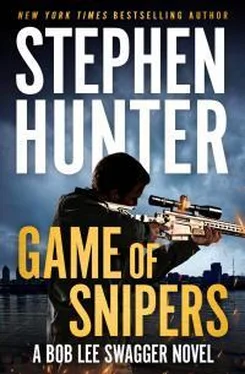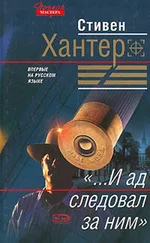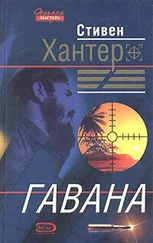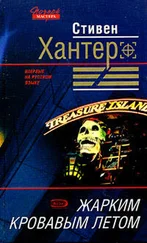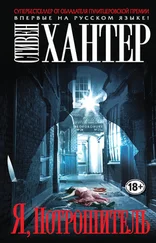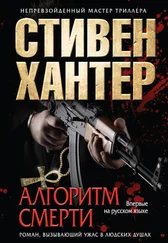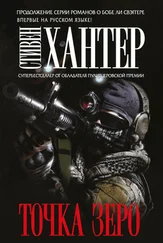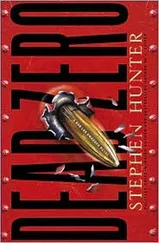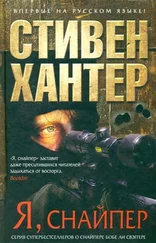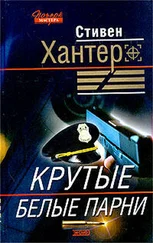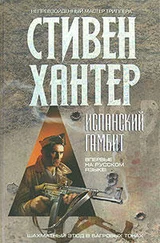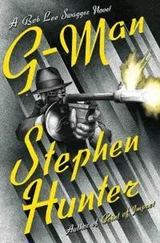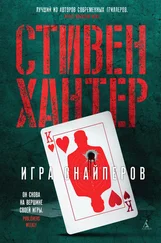“He’s not a face. He’s motion. He’s speed, grace, battle talent, remorseless will. The face is nothing.”
The door opened, and Mr. Gold appeared. He looked tired because during all the time since Juba’s escape, he’d been sitting in the temporary FBI working room in the Wichita Hilton, going through reports, looking for patterns, reading the transcripts of interviews with the captured shooters and the glazier, trying to infer from the grade Z material something grade A. Again, plenty of try, no do.
He shook Swagger’s hand.
“You have survived again,” he said.
“Dying is above my pay grade,” said Bob.
“The bravery is just this side of insanity,” said Gold. “No man on earth would have launched himself at this fellow without a weapon.”
“If it was about heroism,” said Nick, “we’d win every fight.”
“While you’re here, Mr. Gold, I’d like to run my take on the shooting by you. Maybe you’ll see something I missed.”
“Doubtful. But please proceed.”
“I have been thinking about his shot, because I never made one so good. Nobody has, not even Craig Harrison, the long-distance champion of Afghanistan. Hitting a dime at three hundred ain’t the deal, so it wasn’t just marksmanship. It was, I don’t know … They didn’t teach no words for what I mean in 1964, which was my last brush with formal education.”
“‘Spatial imagination’?” asked Nick.
Bob chewed it over.
“Sort of, but not quite. What I mean is, the understanding in a flash of the forces at play and understanding how they must go a certain way, anticipating that, being ahead of it, and putting the shot where the target is going to go, not where it is.”
“Magic?” said Nick.
“‘Dynamic projection,’” said Gold.
“Yeah, yeah, that’s the bull’s-eye. He saw that the kid’s head was invisible behind the Marshal’s but that it was tending to emerge. By the time it emerged, other things might have happened, and if he fired on it while emerging, it might have moved too far when time in flight finally put the bullet there. But, simultaneously, he couldn’t put the bullet through the Marshal’s head because it might not make it all the way or it might get deflected. So he put it on the edge of the Marshal’s skull, above the ear, beneath the cowboy hat, knowing that it wouldn’t impact straight on and explode, deform, deflect, whatever. Basically, he shot on the deflection, like putting the cue ball off the edge to hit two walls, knocking the eight ball on the other side of the table into the sock. He deflected the bullet about fifteen degrees, and it caught Jared just as he turned and emerged, under the right eye of a target that was probably only a quarter visible. Nobody but Juba hits that shot. What does that tell us?”
“It shows that on top of everything else, he’s creative in real time. A difficult man to outthink,” said Mr. Gold.
“Hope I’m up to it. One other thing. You speak Arabic?”
“No outsider really speaks it, not fully and fluently. But in the shallow sense, then, yes, I speak it.”
“He said something to me, even as he didn’t shoot me.”
“You must have impressed him. He doesn’t seem the loquacious sort.”
Swagger spit out clumsily the sounds that Juba had uttered as he stood over him with the recovered Krink.
“Majnun jiddo,” clarified Mr. Gold. “It means ‘crazy grandpa.’”
The ranch
The jet landed at 0345 and quickly went to blackout as it taxied toward Menendez’s private hangar. Juba had sat almost inert during the trip back, seemingly gathering strength after expending so much in the ordeal of shooting and evading.
But when he climbed down the jetway, Señor Menendez himself awaited him and quickly escorted him to the Land Rover. La Culebra, in his sock, and of course the translator, Alberto, necessary to the grandee for many reasons, hovered close by. All climbed into the car and it pulled out, with Mercedeses, fore and aft, full of security.
“Ah, my friend,” said Menendez, “you were superb. What talent, what skill, what a jihadi warrior you are. My god, you accomplished the miraculous, the impossible. I owe you all.”
“I do not want all,” Juba said. “I want safe transport to my shooting site, myself by one route, my rifle by another. I want a new target to shoot, because I have to resharpen reflexes and protocols ignored for too long. All now must be to my task. And if I succeeded with your problem, it was because Allah willed it.”
The last was a simple declaration. By inflection, it suggested that no theological disagreement could be permitted. It also suggested that further conversation could not be permitted. But Menendez was not good at picking up cues from others. He had things to say and would say them, regardless.
“I should thank you also for exposing a traitor in my midst, and, in consequence, I have directed an intense security review. Such measures are extreme, and innocent people, alas, will die. But if we have been penetrated, the whole apparatus is at risk. The traitor must be found, and the capture and deaths of those soldiers must be answered with justice, no matter how sloppy.”
“You infer from the law enforcement response that there was a traitor?”
“I do. How else could—”
“There was no traitor,” said Juba.
“Then how were they upon you before you had even descended the dome? The newspapers were so proud of the police arrival before your escape and the subsequent gun battle. I presume that is cover story to mask the presence of a rat. There’s no way they could have—”
“Yes, there is a way,” said Juba. “I saw it. Or him, as in this case; the way is a man.”
“Who would—”
“We’ll find out. After I’ve rested, I’ll contact my people, and, through them, I’ll access the intelligence files of every agency in the world that keeps records on the Americans. I’m looking for the identity of a senior sniper — sixty, seventy. He was there, and it was through his experience that he understood where the shot had to come from, and it was through his reaction that the police were so quickly on scene. He led them, and he alone understood as the action unfolded where I had to be. And, he was there. This has only happened once before. In Baghdad, when the Americans understood my strategy, they quietly countered it and destroyed it in one afternoon. In both cases, brilliant thought. And I’m guessing in both cases, though the men were different, the agency was the same: the United States Marine Corps. They are shooters. They still understand shooting, and can read it and comprehend its meaning, when so few others can.”
He paused.
“I saw the sniper. Weathered, from a life spent outdoors. Lithe, quick, spry, even though he was so old. Without fear. What crazy grandpa assaults an armed weight lifter thirty-five years younger than him? Only one who has been in many fights and always prevailed and believes himself invulnerable.”
“You showed him he wasn’t.”
“No, I showed him I could evade. That is not a victory. I should have killed him, as I believe it will save me a great deal of trouble in what comes next. But if I’d fired, the sound of the shot would have drawn police in seconds. If I’d paused to strangle him or to smash him with the gun, I would have extended my vulnerability. So even after knocking him to the ground, my first instinct was to evade. I made the right decision, but it feels very wrong.”
Meetings, Wichita, Kansas
Swagger was released on the third day and got to the morning meeting on the fourth day.
It was the first get-together for Chandler, Neill, Nick, Swagger, and Mr. Gold in over a week, and, as usual, Nick had Chandler — hobbling on a walker but game — go through the APB responses and other communiqués from the police net, particularly those provoked by the circularized police artist portrait of the fugitive, under Swagger’s direction.
Читать дальше
